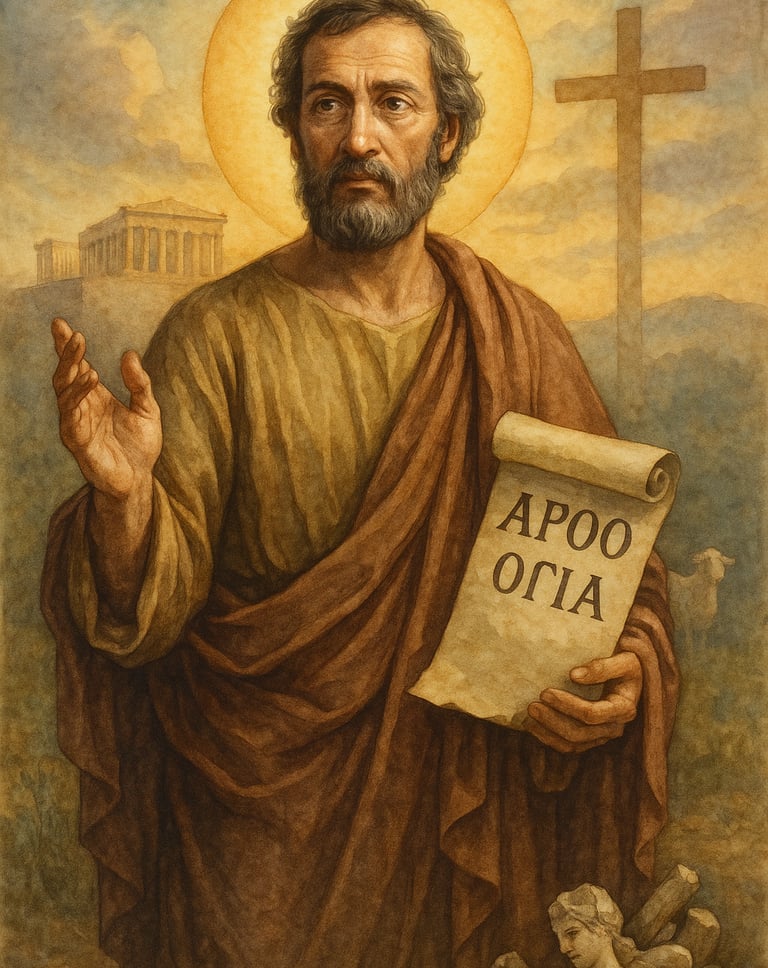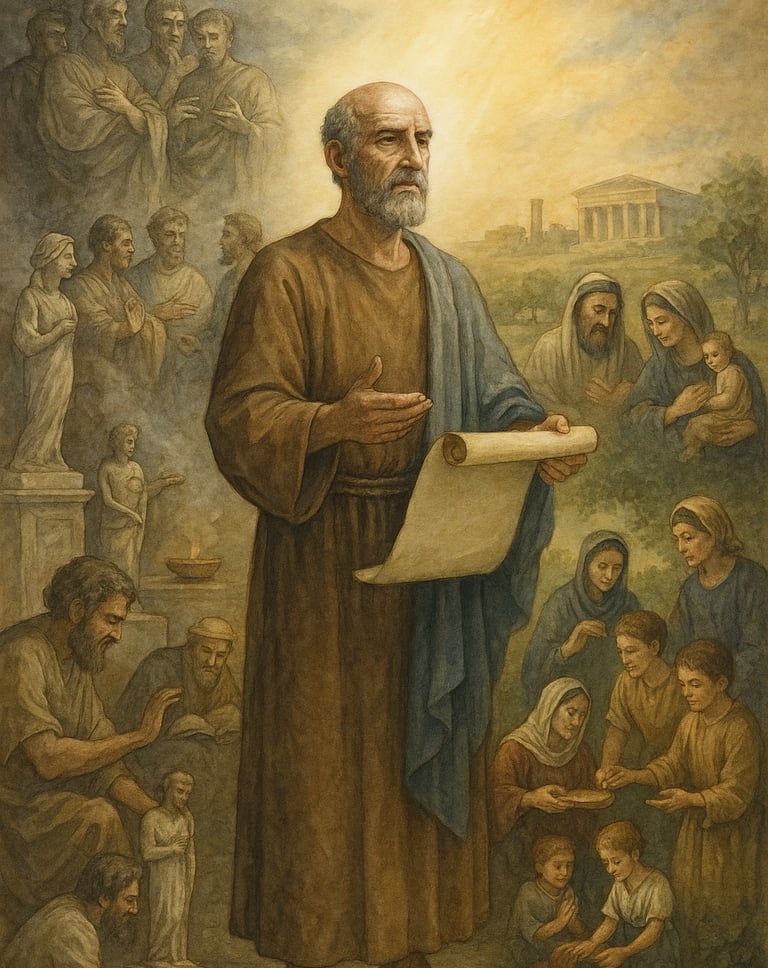Saint Aristides: Philosopher of Athens, Defender of the Faith
Feast Day: August 31 | Patron of Apologists and Christian Thinkers
Halo & Light Studios
9/1/20252 min read


Click Link for a reel of Daily Dose of Saints and Faithful Art:
https://youtube.com/shorts/Kv76qfBA7mE
Fellow Pilgrims in Christ,
When we speak of the earliest defenders of Christianity, one name often overlooked yet deeply significant is Saint Aristides of Athens. Living in the 2nd century, during the reign of Emperor Hadrian (117–138 AD), Aristides was a philosopher who dared to use the tools of Greek thought not for idols, but for Christ. His writings shine as one of the earliest “apologies”—reasoned defenses—of our faith.
The Roman Empire in the 2nd century appeared strong and invincible, stretching across Europe, North Africa, and the Middle East. Yet under the surface, paganism left many souls restless. The worship of multiple gods, the endless cycle of sacrifices, and the moral collapse of society left a hunger for truth. It was in this environment that Christianity was spreading quietly but steadily, often at great cost, as many believers faced persecution.
Athens, Aristides’ home, was still a center of philosophy and culture. Here, Aristides—a man shaped by Greek philosophy—encountered the Gospel and was converted. His intellect, once trained for pagan philosophy, was now devoted to defending the one true God.
Around 125 AD, Aristides wrote his Apology, a letter addressed to Emperor Hadrian himself. In it, he set forth a bold comparison:
The barbarians, he said, worshipped created things without understanding.
The Greeks, despite their philosophy, had fallen into worship of idols and human passions.
The Jews knew the one God but had not recognized Christ.
But the Christians—they worshipped the Creator of heaven and earth, and their lives proved their faith.
He described Christians as a people who lived with purity, charity, and hope: “They love one another, and they never fail to help widows; they rescue orphans from those who would do them violence. He who has gives to him who has not, ungrudgingly and without boasting.”
This Apology stands as one of the earliest windows into the life of the early Church. It shows us how, even within a century of Christ’s Resurrection, Christians were already known for their distinct way of life: their refusal to worship idols, their care for the poor, and their holiness.
Though we know little of Aristides’ later life, his witness endures. His work influenced later apologists like St. Justin Martyr and others who would continue the intellectual defense of Christianity. His rediscovered writings—found in a Syriac monastery on Mount Sinai in the 19th century—remind us that the earliest Christians were not only martyrs but also thinkers, ready to give a reason for the hope that was within them (1 Peter 3:15).
In our own age, when faith is often challenged by skepticism or dismissed as superstition, Aristides reminds us of the power of reason married with faith. He shows that Christianity has always been a thinking faith—one that appeals not only to the heart but also to the mind. His life calls us to live in such a way that, like the Christians he described, our very conduct becomes an Apology for Christ.
May Saint Aristides, philosopher and defender of the faith, pray for us, that we too may witness to Christ with both wisdom and charity.


